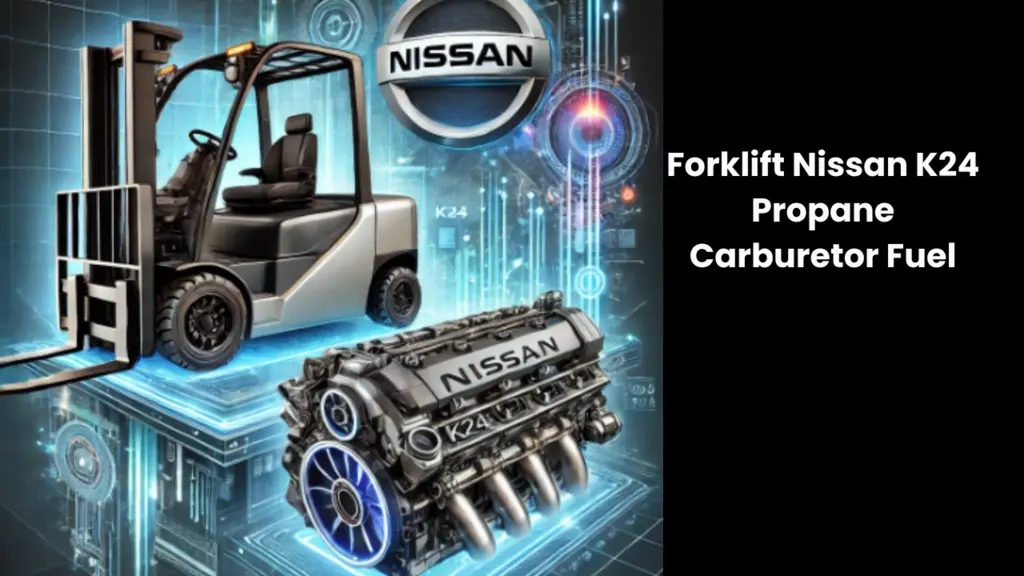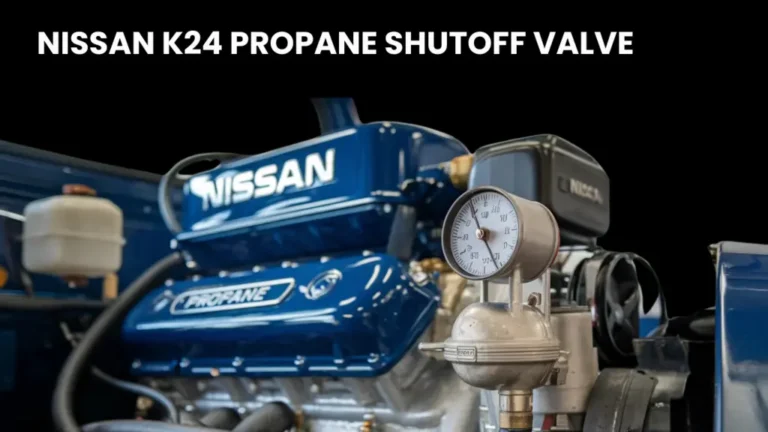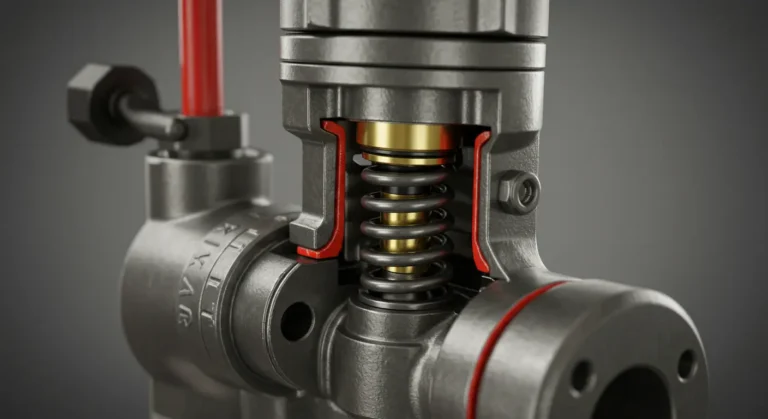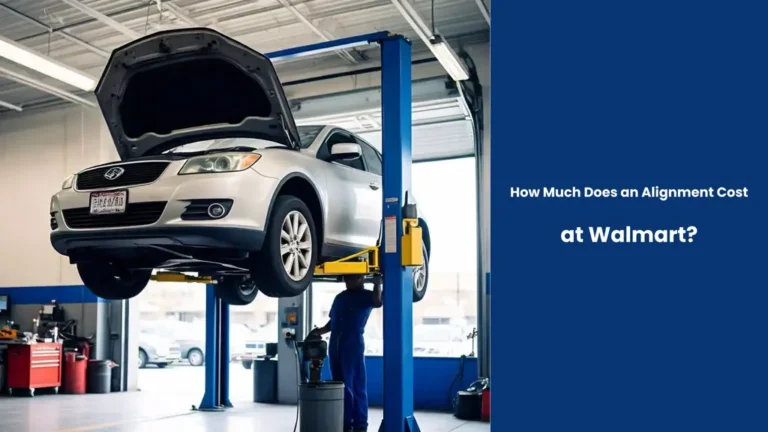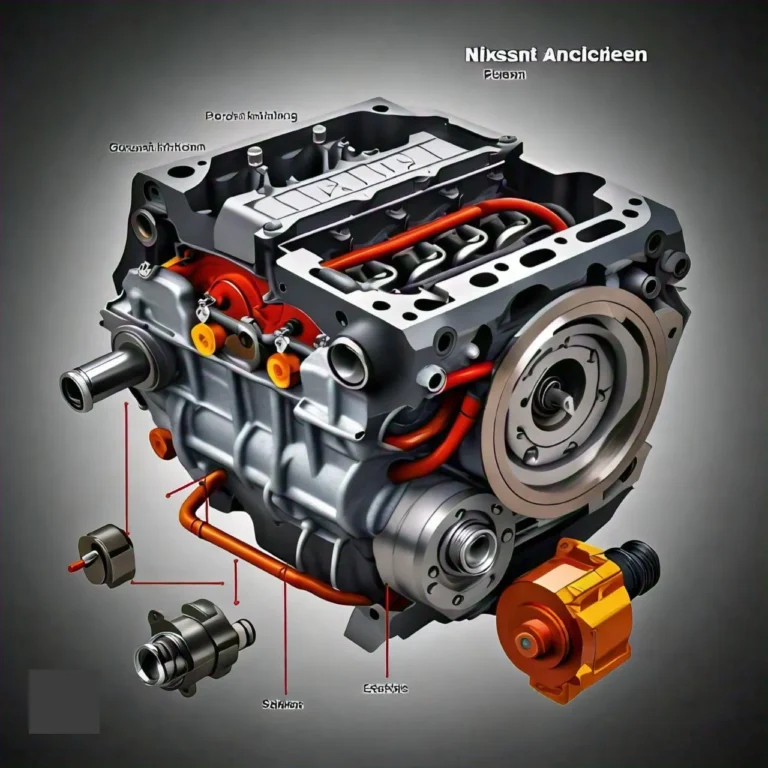Forklift Nissan K24 Propane Carburetor Fuel Benefits
A Nissan K24 forklift uses a propane carburetor for fuel. The carburetor blends propane gas with air in the proper proportions for optimal engine performance. Nissan K24’s engine is dependable, and since it runs on propane, it is more affordable. Learn more about how forklift Nissan K24 propane carburetor fuel is a solid option for companies that need large lifting equipment.
What Is K24 Propane Carburetor?
A K24 propane carburetor is an engine component that helps blend propane gas for the engine to work. In these engines, the carburetor ensures that the proper amount of gasoline and air enter the engine for smooth workflow. Propane is also a cleaner fuel than gasoline or diesel, so it leaves fewer pollutants and is healthier for the environment.
The carburetor draws propane from the fuel tank and mixes it with air before delivering it to the engine’s cylinders. This mixture is then burned to generate power. The K24 propane carburetor is known for its economy and dependability, which makes it a good choice for forklifts and other equipment that needs strong and consistent power.
Nissan K24 Propane Carburetor Fuel Working Mechanism
In the Nissan K24 propane carburetor fuel system, the carburetor draws propane from the tank, mixes it with air, and feeds it to the engine. When this mixture is burned, it creates the energy required to operate the forklift.
Using propane also results in less pollution and longer engine life. The Nissan K24 propane carburetor system is a practical option for companies that need powerful and environmentally friendly machinery.
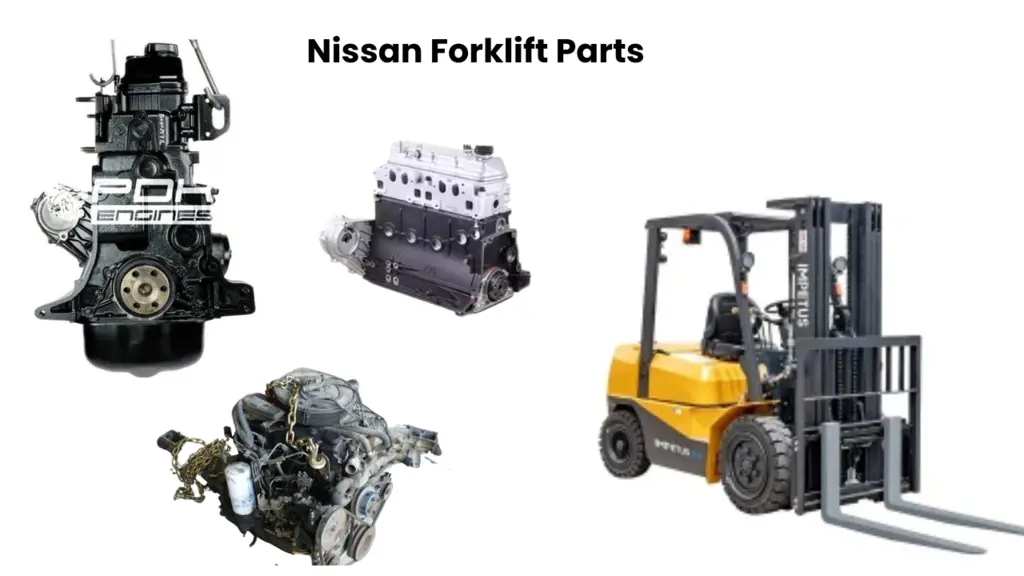
Benefits of Using Propane Fuel in Nissan
Propane might not be a common fuel system in vehicles right now but it has several undeniable benefits over gasoline, such as:
Lower Emissions
In a propane system, the carburetor draws propane from the tank and feeds it to the engine after mixing it with air. When this mixture is burned, it creates the energy needed to operate the forklift. This is why propane engines are well-known for being more efficient and releasing fewer pollutants, which could harm nature.
Low Cost
Propane requires less maintenance and extends the engine’s life. The Nissan K24 propane carburetor system is a practical option for companies that need powerful, environmentally friendly machinery. It is also a cost-effective solution.
Efficient Fuel Use
As we know, the propane system mixes propane with air before feeding it to the engine. When this mixture is burned, it produces the energy needed to operate the forklift. Using propane improves vehicle fuel efficiency, which is a major benefit.
Safe Fuel Options
Propane is a non-toxic and non-poisonous fuel, which makes it safer to use and store. It has a lower risk of spilling or contaminating the environment than liquid fuels. Furthermore, propane tanks are equipped with safety mechanisms that limit the likelihood of leaks and explosions.
Consistent Performance
Propane-powered engines are more reliable even in bad weather conditions. Because propane does not degrade over time, it results in consistent performance without fuel breakdown. Propane is also reliably suitable for equipment that must always be operational.
Longer Running Times
Propane-powered machinery has longer run times than its electric or gasoline counterparts. This is useful in areas such as construction, where forklifts and other machines must run for long periods without being refueled. Longer run times boost productivity and prevent operational interruptions.
Eco-Friendly Alternative
Propane is a cleaner alternative to conventional fuels. It releases fewer greenhouse gases and contributes less to air pollution, which helps businesses reduce their carbon footprint. Choosing propane can help a company achieve its sustainability goals.
Easily Available
Propane is available in most areas, making it simple to find and refuel. Its availability ensures that organizations do not experience supply shortages and can continue to operate normally. This accessibility increases propane’s convenience and dependability as a fuel source.
Quiet Operation
Propane engines make less noise than gasoline or diesel engines. This quieter operation is useful in areas where noise reduction is needed, such as interior warehouses. Less noise can improve working conditions while also reducing noise pollution.
Installation Process of Forklift Nissan K24 Propane Carburetor Fuel
Here is how you can install the forklift Nissan K24 propane carburetor:
1) Safety Preparation
Turn off the forklift and unhook the battery to avoid electrical issues. Remove the entire propane tank from the forklift to avoid any leaks. You will be handling gasoline system components, so wear suitable safety gear like gloves and eye protection.
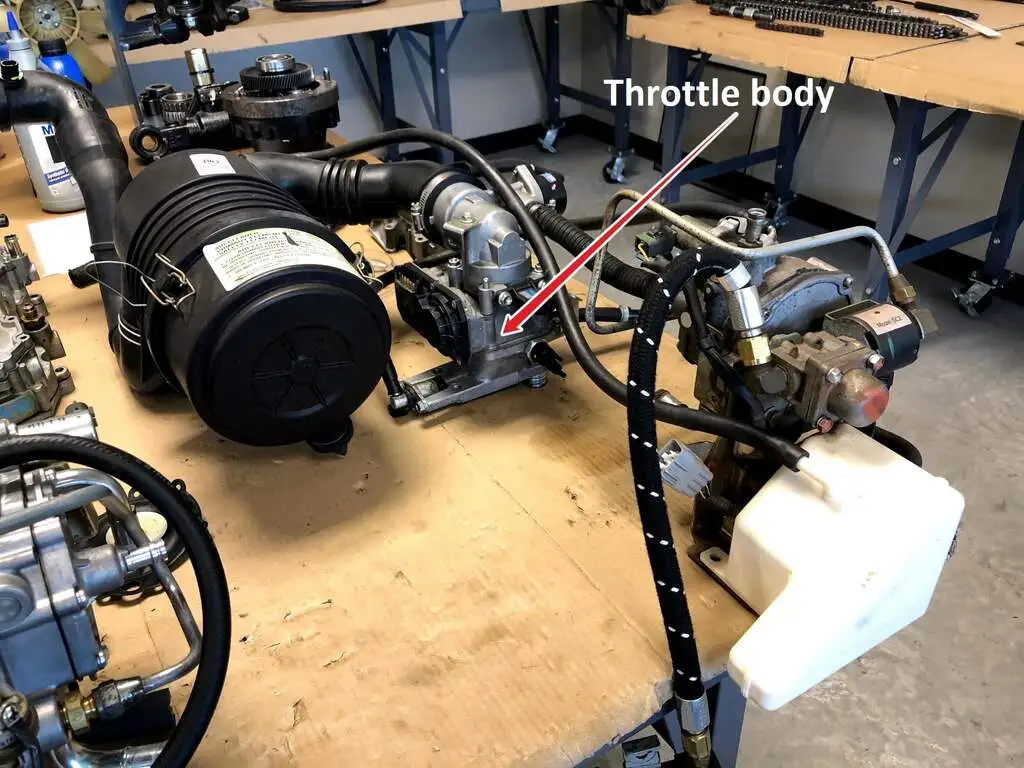
2) Remove the Old Carburetor
The Nissan K24 engine’s existing carburetor is located toward the top. Disconnect the fuel lines, air intake hose, and other attached components, such as throttle cables and sensors. Then, carefully unbolt and remove the old carburetor from the engine.
3) Install a New Propane Carburetor
Install the new propane carburetor in place of the old one making sure that it is properly aligned with the mounting points. Bolt the carburetor firmly to the engine. Reconnect the air intake pipe, throttle cables, and any detached sensors during removal.
4) Connect the Propane Fuel Lines
Attach the propane fuel lines to the new carburetor and keep in check that there is a tight and secure connection. Check the gasoline lines for any damage and replace them if needed. Reinstall the propane tank on the forklift and attach the fuel supply valve.
5) Test for Leaks
Slowly turn on the propane supply valve and listen to hissing sounds, which could show a leak. Use a solution of soap and water to check for leaks around any fuel line connections. If you see bubbles, tighten the connection.
6) Connect the Battery and Do an Engine Test
Reconnect the battery and start the forklift engine. Let the engine idle for a few minutes to confirm that the carburetor works properly. Check the engine’s performance to see if it is running smoothly and if the gasoline is flowing properly.
7) Final Adjustments
To see optimal engine performance, fine-tune the carburetor by changing the air-fuel combination. Once you are happy with the performance, secure all components and keep the area around the carburetor clean and clear of loose pieces.
8 Ways to Maint Your Carburetor Fuel
Now you know how to change your carburetor, but how do you maintain it?
Regular Cleaning
Clean the carburetor regularly to avoid the accumulation of dirt and gasoline residue. Spray the outside and interior with carburetor cleaner. This will keep the fuel flowing smoothly and prevent blockage, allowing the engine to operate efficiently.
Check Fuel Lines
Inspect the gasoline lines linked to the carburetor regularly for signs of wear and leaks. Damaged lines can cause poor fuel flow and engine performance issues. Replace any defective gasoline lines as soon as possible to prevent engine problems.
Check Air Filters
A clogged air filter reduces airflow to the carburetor which results in an improper fuel mixture. To make sure that there is proper airflow, test the air filter regularly and clean or replace it as needed. This helps maintain the proper air-fuel balance and boosts overall engine performance.
Adjust the Fuel Mixture
Check your carburetor’s fuel mixture settings. If the engine runs too rich (too much fuel) or too lean (too much air), adjust the carburetor screws to get the best air-fuel ratio. This will prevent engine problems, including stalling and harsh idling. Proper fuel mixture adjustment creates smoother engine operation and an extended engine lifespan.
Use Clean Propane Fuel
Always use clean propane fuel to prevent impurities from entering the carburetor. Fuel impurities can cause clogging and damage to carburetor components. Also, make sure the propane tanks are well-maintained and free of rust and other contaminants.
Inspect Gaskets and Seals
Gaskets and seals in the carburetor can wear down, resulting in fuel or air leakage. These components need to be checked regularly and replaced if needed. If you properly seal everything, the carburetor will run smoothly without any fuel or air pressure loss.
Monitor Engine Performance
Pay attention to how the engine performs. If you observe rough idling or poor acceleration changes, the carburetor may need service. Finding the faults early on can help you avoid worse problems later on and keep your carburetor fuel system in good condition.
Winterize the Carburetor
If the forklift will not be used for an extended period, the carburetor should be winterized. To prevent corrosion, drain any petrol from the carburetor. This will help prevent problems when starting the engine after a long break. By making sure that all components are cleaned before being stored, you will get optimal performance when the forklift is returned to service.
Real-Life Applications of Nissan K24 Propane Carburetor Fuel
Now that you know everything about the Nissan K24 propane carburetor fuel, let us talk about its real-life applications:
Forklifts
The Nissan K24 propane carburetor is used in forklifts for material handling in warehouses and distribution facilities. Propane-powered forklifts are chosen due to their lower emissions and longer running times in indoor and outdoor environments.
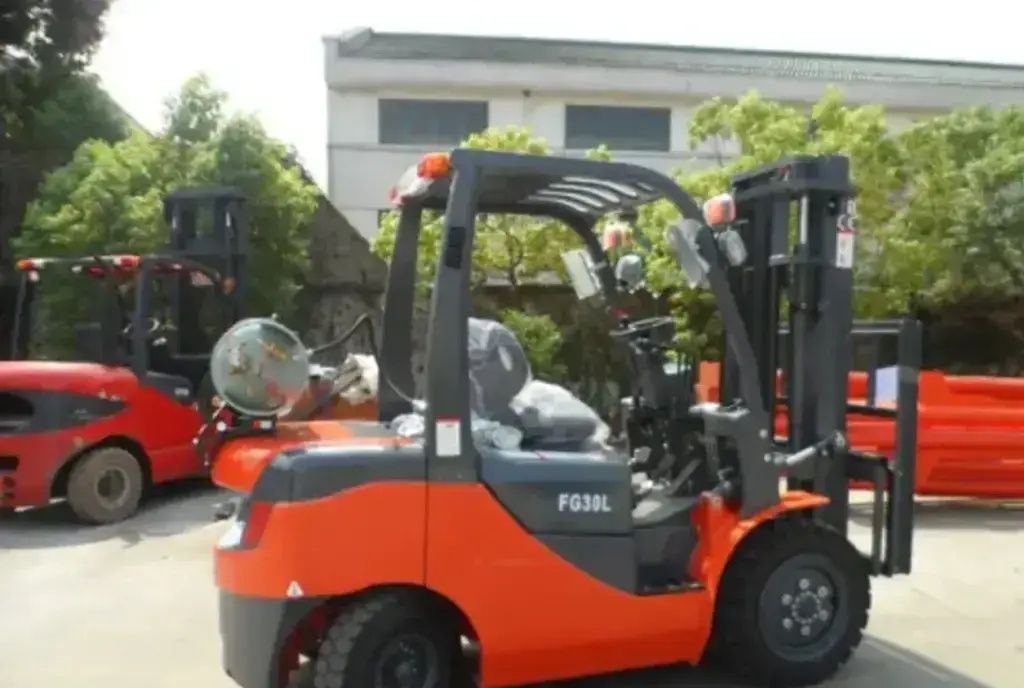
Industrial Equipment
Propane carburetors are used in many industrial applications, such as pallet jacks and sweepers. These machines benefit from propane’s efficiency and low maintenance requirements, making them appropriate for high-duty applications.
Agricultural Vehicles
In agriculture, propane-powered tractors and other equipment can benefit from the Nissan K24 carburetor, which provides a cleaner and more cost-effective fuel solution. Propane’s lower emissions protect air quality on farms and agricultural settings.
Airport Ground Support Equipment
The Nissan K24 propane carburetor is commonly used in ground support equipment powered by propane, such as baggage tugs and cargo loaders. Propane’s clean-burning characteristic reduces pollutants in sensitive environments like airports.
Rental Fleets
Equipment rental firms use propane-powered machinery, such as forklifts and generators equipped with the Nissan K24 carburetor. Propane is a common alternative for rental applications due to its low cost and minimal emissions. The performance and dependability of propane-powered equipment make it a popular choice for rental organizations.
Importance of Propane Fuel in the Future of Automobiles
Propane fuel is becoming more important in the future of automobiles due to its environmental and economic benefits. It burns cleaner than gasoline and diesel, making propane an important part of the transition to more sustainable transportation. It also helps to cut pollution and battle climate change.
Propane is cost-effective, less expensive than traditional fuels, and consistent in price. Due to cleaner combustion, propane-powered vehicles also need less maintenance, which means fewer long-term expenditures.
Propane becomes a practical choice because the automotive sector needs alternate fuels to lower its carbon footprint. Its availability and infrastructure make it simple to implement, while its environmental and cost-saving benefits make it a key fuel for the future of transportation.
Conclusion
The forklift Nissan K24 propane carburetor fuel system is a dependable and ecologically responsible alternative for heavy-duty vehicles. Propane’s cleaner combustion minimizes pollutants and helps businesses save the environment while cutting maintenance costs and increasing engine life.
The system delivers constant performance and longer run periods, making it suitable for indoor and outdoor use. Ultimately, the Nissan K24 propane carburetor fuel system is a great option for companies looking for powerful and environmentally friendly forklift performance.
FAQs
Why Is Propane Cheaper Than Gasoline?
Propane is cheaper than gasoline because of lower manufacturing costs, less refining, and more consistent market pricing.
How Does a Propane Carburetor Work?
A propane carburetor blends propane and air to produce an explosive mixture for the engine.
What Is the Octane Rating of Propane?
The octane rating of propane is between 104 and 112. This makes it a high-performance fuel alternative.
